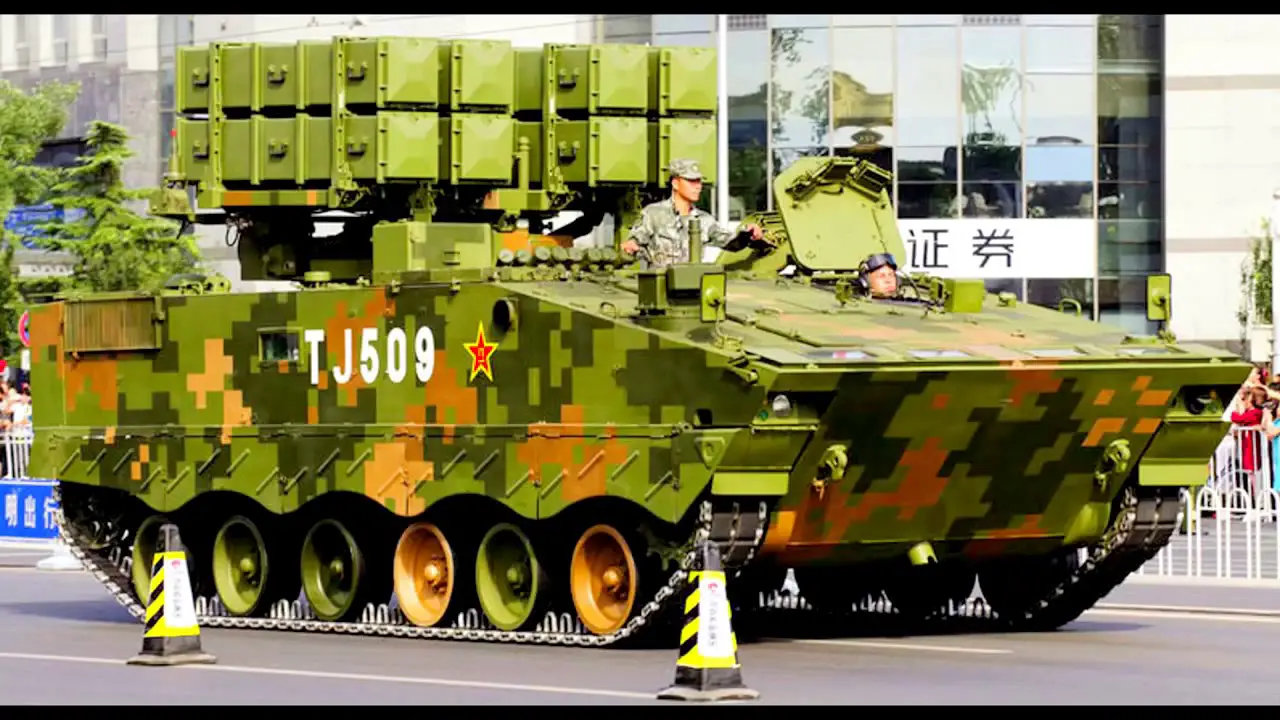
Norinco/CNR conduct missile HJ-10 and HJ-12 Laser Guided anti-tank guided missile (ATGM) live firing demonstration. HJ-10 (HJ = Hong Jian or Hongjian, meaning Red Arrow) is a series of indigenously developed and highly classified (as of 2011) Chinese anti-helicopter / anti-tank missiles, they are the primary weapon of the CAIC WZ-10 attack helicopter. Many sources have claimed that this little-known missile is the Chinese equivalent of the AGM-114 Hellfire, although the details of the actual performance of the HJ-10 have yet to be released officially by the Chinese government or other credible sources to confirm such claims. Several derivatives of the HJ-10 have also been developed by China, they are all believed to be in limited service with the Chinese military for evaluation purposes.
HJ-10 is the ATGM version of the series and it is the first one to be developed. The shape of the HJ-10 is not uniform: a quarter or a third of its length at the front has a smaller diameter than the rest, the seeker is at the front of the missile. There are two sets of cruciform wings totaling eight, mounted at the rear of the missile, immediately next to each other. The first set of four with a trapezoid shape are larger than the second set which are rectangular. A total of eight versions have been reportedly developed, when combining different seekers and warheads. Two types of warheads were introduced. The first was one with a tandem-charge that was designed to defeat reactive armor, the second was the top attack version. Each missile armed with a particular warhead would also be equipped with various seekers, from TV, Imaging IR (ImIR), semi-active laser homing or millimeter wave (MMW) radar. The Chinese have claimed that all seekers are interchangeable, but have not indicated at which level. Most likely this would be achieved at the factory, not in the field. The developer of the HJ-10 has also claimed that the missile is interchangeable between launching platforms in the field when necessary.
The HJ-12 is a modern, third generation anti-tank missile developed by China North Industries Corporation (NORINCO). The HJ-12 is a fire-and-forget system utilizing Lock-On Before Launch (LOBL) and is capable of being fired within buildings and bunkers due to its soft launch system. Once launched, it will home autonomously onto its target, allowing the operator to immediately take cover or reload to engage another target. The warhead uses a tandem shaped charge design with an estimated penetration capability of up to 1,100 mm (43 in) of rolled homogeneous armour (RHA) after penetrating explosive reactive armor. When facing non-armored point targets, bunkers and fortifications, the missile can be fitted with either high-explosive or thermal effect warheads. Its fire-and-forget technology will reduce the number of anti-tank operators needed on a battlefield, which lowers probable casualties. When engaging enemy tanks and armored vehicles, the HJ-12 aims to destroy the top of its targets, the more vulnerable point. Its design appears to be a combination of the Javelin and the Spike.
The HJ-12 is China’s first portable anti-tank missile, increasing the ability of the People’s Liberation Army Ground Force to have more modern and mobile infantry forces. It is intended to enable China to match up with anti-tank missile developments made by Western and Russian armies, like the FGM-148 Javelin and AT-13 Saxhorn-2. The missile is also available for export to armies in developing countries that would need to contend with third-generation main battle tanks, but the number of potential buyers is likely small due to its higher cost.














